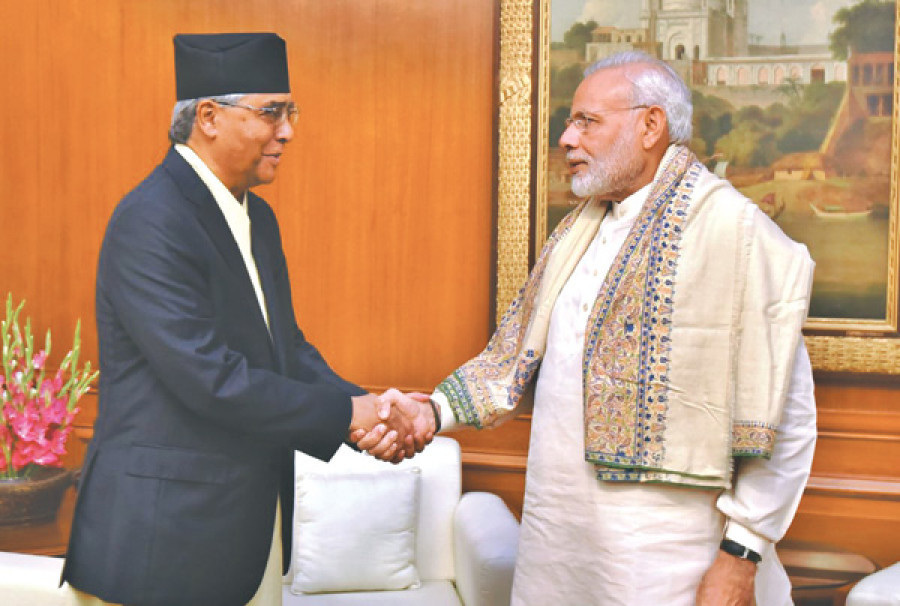KP Sharma Oli Appointed Nepal's Prime Minister for the Fourth Term
International International NewsPosted by pallavi on 2024-07-15 07:37:17 |
Share: Facebook | Twitter | Whatsapp | Linkedin Visits: 89

Reappointment and Ceremony
KP Sharma Oli, leader of Nepal’s largest communist party, was reappointed as Nepal’s Prime Minister for the fourth time. The oath-taking ceremony took place at Shital Niwas, the main building of Rashtrapati Bhawan, on Monday at 11 am. This reappointment followed outgoing Prime Minister Pushpa Kamal Dahal's failure to secure confidence from the House of Representatives during a floor test on Friday.
Support and Coalition
Oli's reappointment was underpinned by a coalition agreement with the Nepali Congress, the largest party in Parliament. Oli secured his position with the backing of NC president Sher Bahadur Deuba, presenting signatures from 165 members of the House of Representatives—77 from his Communist Party of Nepal-Unified Marxist Leninist (CPN-UML) party and 88 from the Nepali Congress.
Political Landscape and Challenges
Nepal has experienced frequent political turmoil, having seen 14 governments in the past 16 years since the introduction of the Republican system. Oli’s new coalition government faces the significant challenge of providing political stability. According to a seven-point deal between Deuba and Oli, the two leaders will share the leadership of the government on a rotational basis until the next general elections scheduled for 2027.
International Relations
Indian Prime Minister Narendra Modi congratulated Oli on his reappointment, expressing optimism about strengthening the bilateral relationship between India and Nepal. Modi highlighted the importance of expanding mutually beneficial cooperation for the progress and prosperity of both nations.
Historical Context
Oli previously served as Nepal’s Prime Minister from October 2015 to August 2016, from February 2018 to July 2021, and briefly from May 2021 to July 2021. His previous tenure included a period where his claim to the post was deemed unconstitutional by the Supreme Court.
Search
Categories
Recent News
- Supreme Court Raises Alarm Over Activist's Health in Custody
- Andre Beteille: A Life Dedicated to Sociology's Evolution
- India's Cybercrime Fight: Billions Protected, Millions of Cases
- Bengaluru Siblings' Daring Escape: A Lesson in Communication
- Messi's Return to Roots: Newell's Daring Vision for 2027
- Hyderabad's Crime Rate Drops, But Challenges Remain
- Ferry Service Expansion: A Boost for Tourism in Tamil Nadu
- 'Culture Clash' in Adelaide: Racial Tensions Rise Over Park Usage
Popular News
- Navigating IPO Market Dynamics Amid Volatility and Regulatory Changes
- Massive Worldwide Microsoft Outage Disrupts Multiple Sectors
- Panjapur Bus Stand to Reshape TNSTC Routes
- తెలుగుదేశం పార్టీ - పేదరికాన్ని నిర్మూలించడంలో వాగ్దానం
- Universities Embrace Remote Learning Technologies Amidst Ongoing Pandemic